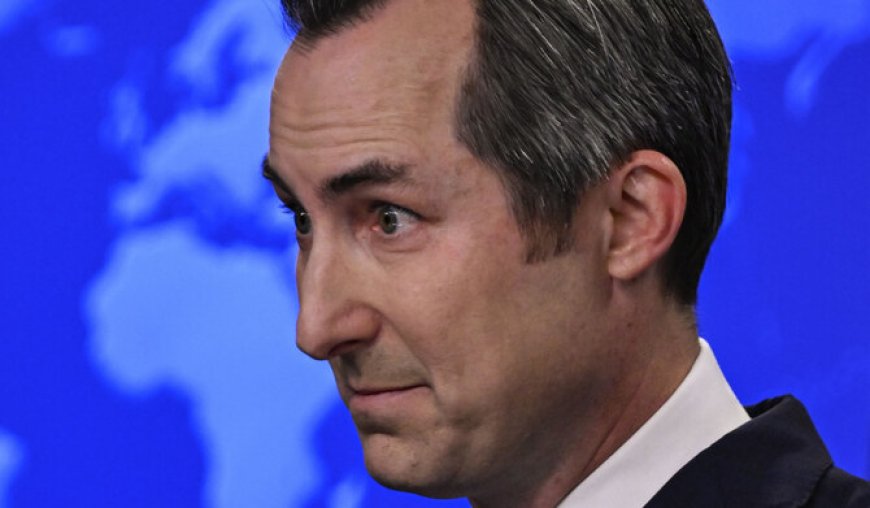US Still Improving Gaza Ceasefire Proposal During Continual Negotiations
Confirmed by State Department spokesman Matthew Miller, the United States is carefully collaborating with Egyptian and Qatari negotiators to draft a revised ceasefire proposal for Gaza. This update coincides with the continuous strife afflicting the area for more than a year and a half, with no sign of resolution despite many negotiating efforts.

Confirmed by State Department spokesman Matthew Miller, the United States is carefully collaborating with Egyptian and Qatari negotiators to draft a revised ceasefire proposal for Gaza. This update coincides with the continuous strife afflicting the area for more than a year and a half, with no sign of resolution despite many negotiating efforts.
"We are in active discussions with our partners to develop a proposal that has the best chance of bringing about a sustainable agreement," Miller underlined at a Monday press briefing, stressing the complexity of the matter. Miller stressed the urgency of the situation and the need of a thorough and practical plan even though he could not offer a precise date for the completion of the proposal.
Given the length of the battle, which started on October 7, 2023, the present negotiations are very important. The United States has been engaged in negotiating a settlement that not only seeks to stop the bloodshed but also attends to humanitarian issues including the release of hostages kept by Hamas. Though earlier ideas, including one publicly stated by President Joe Biden in June, a firm ceasefire has yet to be attained.
Based on the previously suggested terms, Hamas lately expressed its readiness to accept a ceasefire without adding any further requirements. Though major obstacles still exist, this posture has been greeted as encouraging. Important concerns include Israel's insistence on keeping its military presence in the Philadelphi corridor, a vital location meant to act as a buffer between Gaza and Egypt, and the specifics of the hostage swap for Palestinian inmates under custody by Israel.
Discussions have focused on the short stretch of territory known as the Philadelphi corridor, which runs along the Gaza-Egypt border, because of its strategic relevance in stopping any attacks and managing smuggling. Israel's determination to keep authority over this territory underscores its more general security issues and necessity to guard its border against militant activity.
The negotiators also wrestle with the complexity of a possible prisoner swap. Exchanging hostages for convicts presents political and logistical difficulties that are proving to be a great obstacle in trying to come to a mutually acceptable arrangement.
The international world is still hoping that the continuous diplomatic efforts will result in a sustainable ceasefire even as the fighting causes great humanitarian damage including casualties and displacement of people. The U.S., Egypt, and Qatar's mediation emphasizes a cooperative approach to end one of the most tenacious and explosive crises of recent times.
Whether these conversations result in a ceasefire that can at last end the hostilities and provide a ray of hope for peace in Gaza, will depend mostly on the next days and weeks.













































